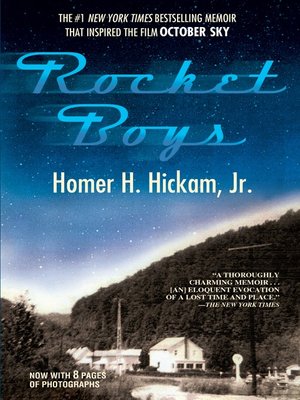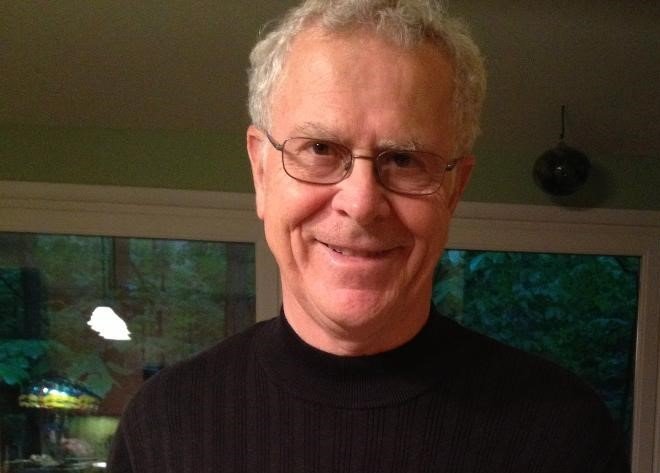Homer Hickam is a former NASA engineer, a New York Times bestselling author, a Vietnam War veteran, a small town hero, and a Project Talent participant from Big Creek High School in War, West Virginia. His memoir, Rocket Boys, is an account of his youth spent designing and launching rockets with his friends in his hometown of Coalwood, West Virginia. The group called themselves the “Big Creek Missile Agency” and would go on to be known as the “Rocket Boys.” His book inspired the 1999 film, October Sky. Recently, I spoke with Mr. Hickman about his high school experience, his many accomplishments, and his Project Talent memories.
For Hickam, high school was a defining life experience. He offered high praise for those who taught him, saying that he “never had a bad teacher, not one. They were hard, but encouraging.” One teacher in particular played an important role in nurturing his abilities in science and engineering –Miss Freida Riley – who appears in his memoir. With Miss Riley’s encouragement and support, Homer and the Rocket Boys took their rocket-building skills to the 1960 National Science Fair and won the gold medal. Project Talent was administered that very same year. During our interview, Hickam also discussed a different educational path he considered in high school, saying “English was my forte. I considered going to school to become an English professor.” Ultimately he chose the sciences, and graduated from Virginia Tech in 1964 with a degree in Industrial Engineering.
Hickam eventually parlayed his degree into a job at NASA. Having already established a career in the army, he described his decision to join NASA as “a leap of faith.” There had been a six-year gap between his college training and joining the industry he studied for, but Hickam remained optimistic and eventually contributed to some of NASA’s biggest triumphs. During his career he trained shuttle astronauts who became national heroes and household names, and was instrumental in the Hubble Telescope repair missions.

Rocket Boys is Homer (Sonny) Hickam Jr.’s memoir of his life growing up in West Virginia, the son of a coal mine superintendent. In 1957, he is inspired by Sputnik to learn how to build rockets. Sonny and his friends are encouraged by their chemistry teacher.


In 1999, the governor of West Virginia declared an annual Rocket Boys Day to celebrate Homer Hickam and the Rocket Boys’ achievements. According to Hickam, his favorite thing about the celebration is “getting to meet people.” He enjoys interacting with folks in the book signing line and “hearing stories from people who have read my novel.” This year, Rocket Boys Day was the first weekend in October and took place in Green Bryant Springs, West Virginia.

- Homer Hickam: How one Rocket Boy Achieved His American Dream Homer Hickam is a former NASA engineer, a New York Times bestselling author, a Vietnam War veteran, a small town hero, and a Project Talent participant from Big Creek High School in War, West Virginia.
- With book by Homer Hickam Jr., stage adaptation by Chris Budinich, music and lyrics by Diana Belkowski and Dan Tramon (members of the BMI Lehman-Engel workshop and Disney / ASCAP musical theatre workshop winners for both Flyer the Musical and Rocket Boys the Musical) and direction by Carl Anthony Tramon, Rocket Boys the musical tells Homer.
Homer Hickam Rocket Boys Images
Hickam described his Project Talent experience as one full of patriotism and enthusiasm. “The principal stressed the importance of taking this test seriously and the teachers all wanted us to do well.” Like thousands of his fellow participants, Hickam requested his scores a year ago because he was “curious.” Specifically, Hickam was interested in “how well I did on the technical side, as well as my English scores.”

Homer Hickam's Father Homer Hickman
Homer Hickam is one example of an exceptional individual from an exceptional generation. His is one of the many interesting stories Project Talent participants have shared, providing further confirmation that the members of this study have made many amazing contributions to science, culture, and American society.
